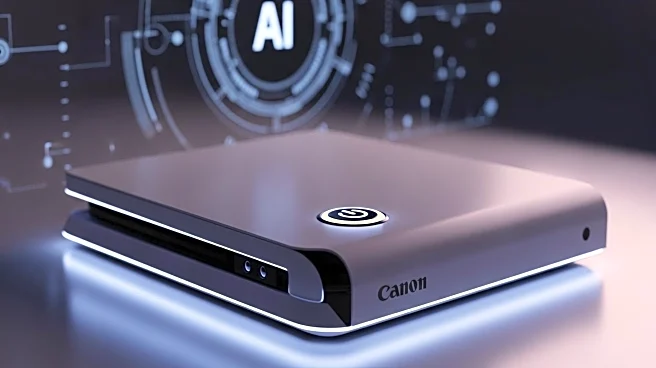What's Happening?
Nintendo has publicly refuted claims that it has been lobbying Japanese lawmakers against the use of generative AI technology. The denial follows an apology from Japanese politician Satoshi Asano, who had initially alleged that Nintendo was involved in lobbying efforts. Asano later retracted his statement and deleted the original post. Nintendo emphasized that it has not engaged with the Japanese government regarding generative AI. Despite the rumors, the company reiterated its commitment to protecting its intellectual property rights, regardless of AI involvement. Nintendo of America president Doug Bowser highlighted the importance of human creativity in game development, contrasting Nintendo's stance with other companies like Square Enix and Capcom, which have shown interest in integrating AI into their processes.
Why It's Important?
The clarification from Nintendo is significant as it addresses concerns about the company's stance on emerging technologies like generative AI, which are increasingly being adopted in the gaming industry. By distancing itself from lobbying activities, Nintendo maintains its focus on safeguarding its intellectual property, a critical aspect of its business model. This stance may influence industry standards and practices, as other companies explore AI's potential in game development. The emphasis on human creativity underscores Nintendo's commitment to traditional development methods, potentially affecting its competitive positioning against companies that are more aggressively pursuing AI integration.
What's Next?
Nintendo's reaffirmation of its intellectual property protection strategy suggests ongoing vigilance against potential infringements, which could involve legal actions or policy advocacy. As the gaming industry continues to evolve with AI technologies, Nintendo may face pressure to adapt its development practices to remain competitive. The company's approach could influence its collaborations and partnerships, as well as its engagement with regulatory bodies concerning AI-related policies. Stakeholders, including developers and consumers, will likely monitor Nintendo's actions closely, assessing how its strategies impact game quality and innovation.
Beyond the Headlines
Nintendo's stance on generative AI raises broader questions about the ethical implications of AI in creative industries. The company's commitment to human-driven game development highlights concerns about AI's role in potentially diminishing artistic expression and originality. This perspective may resonate with consumers who value traditional craftsmanship in gaming experiences. Additionally, Nintendo's approach could spark discussions on the balance between technological advancement and preserving cultural and artistic integrity within the industry.









